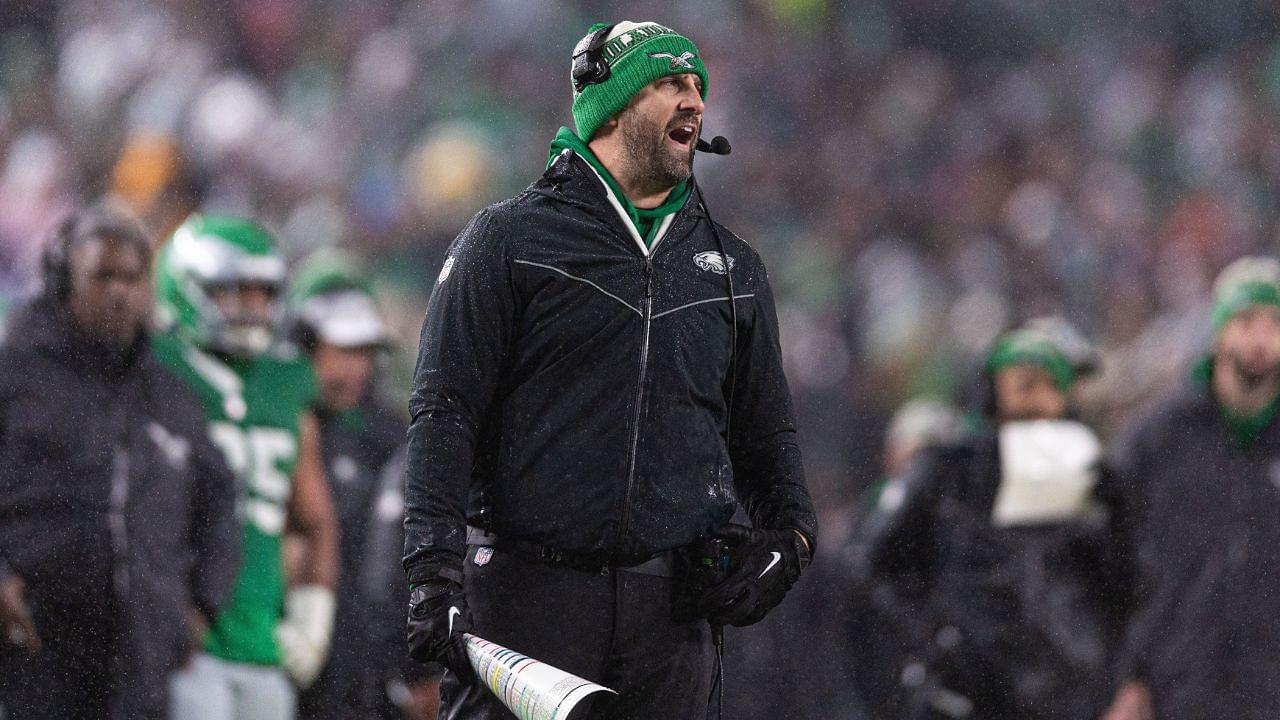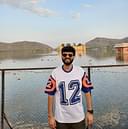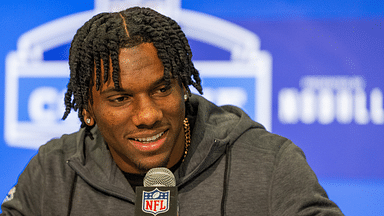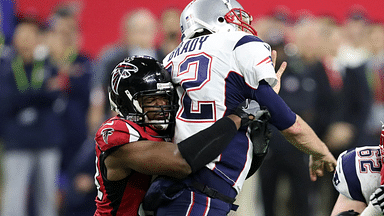Tush Push is now a play that Nick Sirianni has mastered with the Eagles that no other team has the answer to. The Eagles’ tush push is slowly taking over the league, however, its success rate among other NFL teams is quite low. In the last season, the Philadelphia Eagles used it 41 times and it worked for them 37 times.
Advertisement
In the last Super Bowl itself, the Eagles ran the “Brotherly Shove” six times converting two of them into touchdowns. The impact of the play has been so massive that it has been the subject of a lot of debate to the point that NFL commissioner Roger Goodell is now reportedly eyeing to ban it permanently.
Before the Tush Push came into the forefront, Vikings’ LB Anthony Barr was once heard talking about it on the sideline while he was wearing a microphone. Back in 2018, during an NFL game, he suggested a strategy where two big guys, like a strong quarterback and another strong player behind him, could work together for a special kind of play. This play involved pushing forward to help the quarterback sneak through the defense and score points easily.
Unveiling Nick Sirianni’s Cheat Code Play in Action
Two years later, in 2020, Nick Sirianni, who was then working as the offensive coordinator for the Indianapolis Colts, put this idea into action. He used their 238-pound backup QB Jacoby Brissett, to try out a similar strategy in a game where the QB was pushed forward to successfully score a touchdown using this tactic.
The following year, in 2021, Sirianni became the head coach of the Philadelphia Eagles and continued with a similar strategy. This time Eagles QB Jalen Hurts utilized this technique to score a touchdown while he got some help from his teammate Jack Stoll, who gave him a push from behind, allowing Hurts to cross the goal line.
Six weeks later, during another game, the Eagles used a similar tactic. This time, TE Dallas Goedert got the signal to give Hurts a Brotherly shove, making it the Eagles’ signature play. The players entrusted with the Tush Push had been lifting weights of about 600 pounds since they were in college. The strength training helped Jalen Hurts and his team to execute this powerful play which has now become a cheat code for the Eagles to gain a guaranteed 1-yard.
Amid the growing debate over the ban of the Tush Push play in the NFL, Eagles head coach Nick Sirianni focused on its effectiveness in critical short-yard situations. Sirianni talked to reporters after winning the game against the Dolphins in Week 7. He argued against banning the play and expressed the team’s confidence in it which required unique skill to make every attempt successful. He stressed the fact that not everyone can copy how they do it and thinks this is what makes the Eagles special and it is called Brotherly Shove for a reason.







